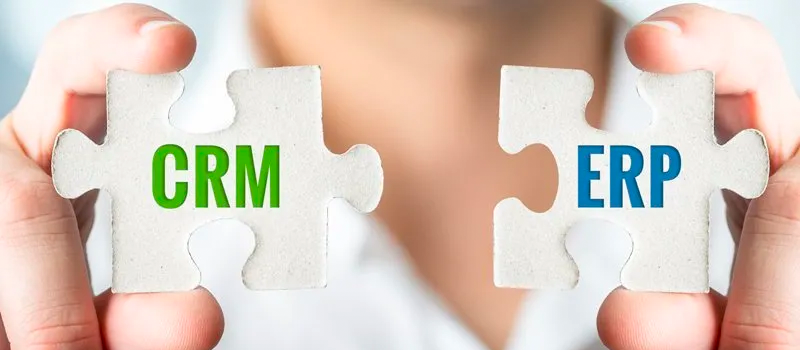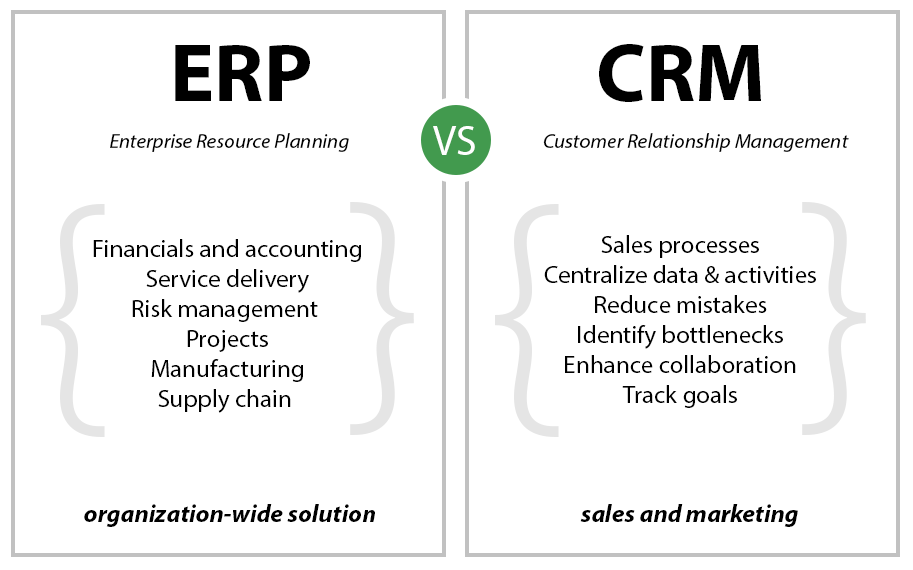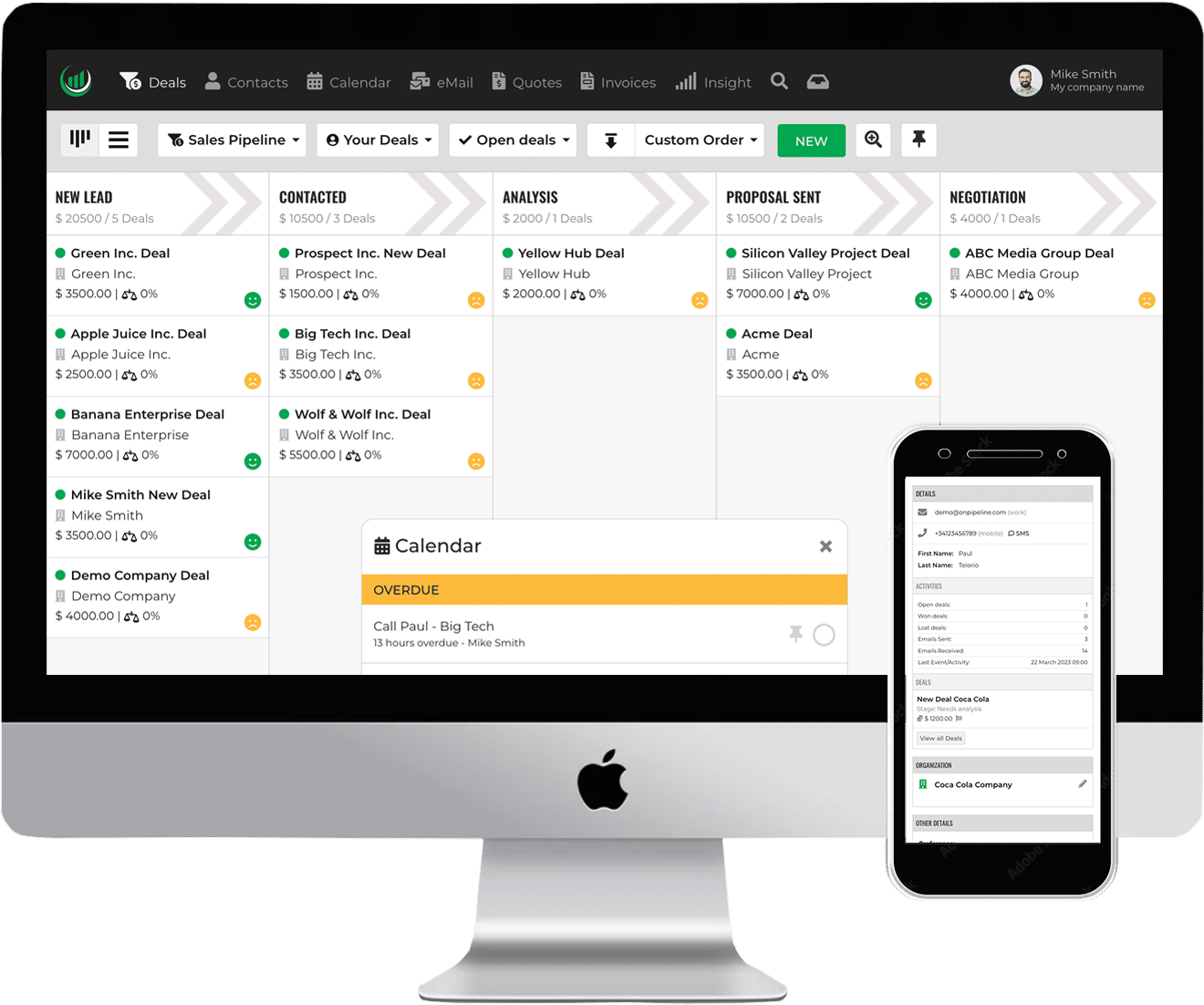The customer relationship management (CRM) industry grew by 10% in 2020. And 91% of businesses with 10+ employees use the software.
Are you uncertain about the differences between an ERP and a CRM? Discover more about each type of system below. And learn more about the similarities and differences in each.
What is an ERP?
An ERP system is an organization-wide solution that streamlines processes and increases efficiency. An ERP system is a modernization effort to improve a business’s core operations with new technology.
ERP systems manage several areas of operation. These include:
- Financials and accounting
- Service delivery
- Risk management
- Projects
- Manufacturing
- Supply chain
You can replace outdated systems with an ERP system. ERP systems modernize operations with tools and processes. Those tools automate manual tasks and save the companies money.
ERP systems can automate invoicing and sales order processes. These systems are comprehensive technology that allows businesses to automate inventory ordering and allocation.
Benefits of an ERP Across the Organization
While there are many benefits to implementing an ERP, the main one is you reduce the need for several types of software. When you use a centralized solution, there’s less room for error or the creation of silos.
A centralized system enables more time savings and fewer risks. Consolidated information and reports are more accessible by those who need them. This reduces delays in waiting for updated spreadsheets or reports.
ERP systems also aid in maintaining compliance. They also support growth and business scaling with the ability to create processes that result in organizational improvements.
An ERP makes your entire business operate more smoothly. This results in improved employee and customer satisfaction.
People Management
An ERP also helps businesses better manage their people operations. Many ERPs have features to schedule employees, manage and approve leave requests, and distribute wages.
Inventory Management
Inventory management is much more streamlined with an ERP. When you enable automated ordering and alerts, you make sure you never run out of stock again. This can go a long way in maintaining customer satisfaction.
Financial Management
Your entire organization operates around financial processes. An ERP streamlines and integrates these processes across each department. This leads to better expense control and budget monitoring.
Supply Chain Management
ERPs help to manage purchase orders, distribution efforts, and quality assurance. The tools included in an ERP system also assist with manufacturing efforts and regulatory compliance related to the supply chain.
What is a CRM?
A CRM manages customer relationships, but it also supports the entire sales process.
Integrating a CRM into your business helps sales professionals to manage customers from the initial pipeline through to the final sale. And after the sale, the system lets you manage all communications and interactions with the customers.
Different departments across the organization use CRMs for different reasons, giving your business the most out of the software.
IT can use a CRM to manage customer support tickets. And the marketing team could include it in their overall marketing strategy as a way to connect with existing customers.
A CRM can:
- Improve processes
- Centralize communications and activities
- Reduce mistakes
- Identify bottlenecks
- Generate reports
- Enhance collaboration
- Automate
- Track goals
CRM systems are created with the customer in mind. It’s made to keep customers happy and engaged. And considering customers bring in the revenue, it might be a good system to have in your business.
Benefits of CRM in Sales
The sales department can use a CRM to manage pipeline contacts and leads. A CRM has professional tools built in to manage a sales funnel effectively. With a centralized data solution, sales representatives can focus more on building relationships and securing sales.
Do you want more sales tips? Check out this article.
Benefits of CRM in Marketing
Once a sale is completed, the marketing department has a clearer picture of how to advertise to those customers. A CRM will allow marketing teams to manage campaigns, communications, and customer information.
For more marketing promotional tips, read this article.
ERP vs. CRM: Key Differences
The most distinctive difference between an ERP and CRM is that ERPs manage more processes. CRMs offer tailored solutions for managing customer interactions and sales, while ERPs can streamline processes across several departments.
Some ERP solutions do have a built-in CRM solution, but they may not include all the benefits a standalone solution would. An ERP solution is for more back-office functions while CRM handles front-office functions.
An ERP system gives key insights to all business performance. A CRM provides a comprehensive look at customer profiles.
ERP vs. CRM: Similarities
Both systems make your organization operate more smoothly. Both systems offer automation for key processes that keep your business running. And both systems are generally vital for companies to scale their operations.
An ERP and a CRM both offer data insights to different areas of operations. You can select cloud-based or on-premise solutions for each system.
Which System Does Your Company Need?
More than likely, your company will need both systems at some point. But when making a choice for the near future, look at what your operations could benefit from most right now.
Do you need more sales? Or do you need more help managing financials and inventory?
Before choosing what solution your company needs, it’s best to do a comprehensive evaluation. Once you have a clear picture of how your company operates and where you can make improvements, it’ll be easier to make a decision.
Both systems have a host of benefits, such as:
- Increased efficiency
- Higher productivity
- Saved time and costs
- Better data management
- More collaboration across the company
Ultimately, it depends on what your business needs in the short term. Or if you’re overhauling your entire organization, it may be best to choose an ERP and a CRM system.
Increased Efficiency
With centralized data and reports, a company’s efficiency will increase. Finding information and generating reports is simple with an ERP solution. Both systems allow for many manual tasks to be automated, also increasing efficiency across operations.
Easier, more efficient processes put less pressure on employees. When team members aren’t overwhelmed with workloads, they perform better.
Higher Productivity
With saved time and increased efficiency, higher productivity across your team members is a given. Teams will have more time to focus on revenue-generating tasks instead of manual duties that suck away hours.
Lines of communication between departments are more open with these systems. When employees aren’t waiting hours, sometimes days, to get a response about a task, it leads to increased productivity.
Goals are simplified and easier to track with ERPs and CRMs. This will help employees to focus on the areas that need the most attention because they can monitor their efforts in real-time.
Saved Time and Costs
Not only will your company save time with a centralized system, but you’ll save on costs. You won’t have to buy several systems or pay to train employees on several systems.
You can automate tasks that previously took hours to complete.
Better Data Management
The company’s data will be within one system. Teams won’t have to jump between software to collect necessary data to make decisions.
More Collaboration
With centralized processes and information, teams will be able to collaborate more effectively. Each team will be able to see the information they need and send additional, related information.
More collaboration across your organization will lead to a better customer experience, along with increased performance and boosted employee morale.
Considerations When Selecting a System
It’s important to note that many CRMs integrate with ERPs. So, using both simultaneously is possible. And many companies leverage both systems to maximize their operations.
For example, having both could lead to a more streamlined process for customer contracts. Say you send a proposal and the customer accepts; the system would automate the next steps. Integration of both will make sure you don’t miss any steps.
Get Started with Onpipeline CRM Today
Would your company benefit from a CRM system? Onpipeline CRM can help your business! We have a variety of packages available to support businesses of all sizes.
With Onpipeline CRM, you can manage leads, improve communications, and automate processes.
Want to try before you buy? Check out our free trial! Contact us today for more information.



